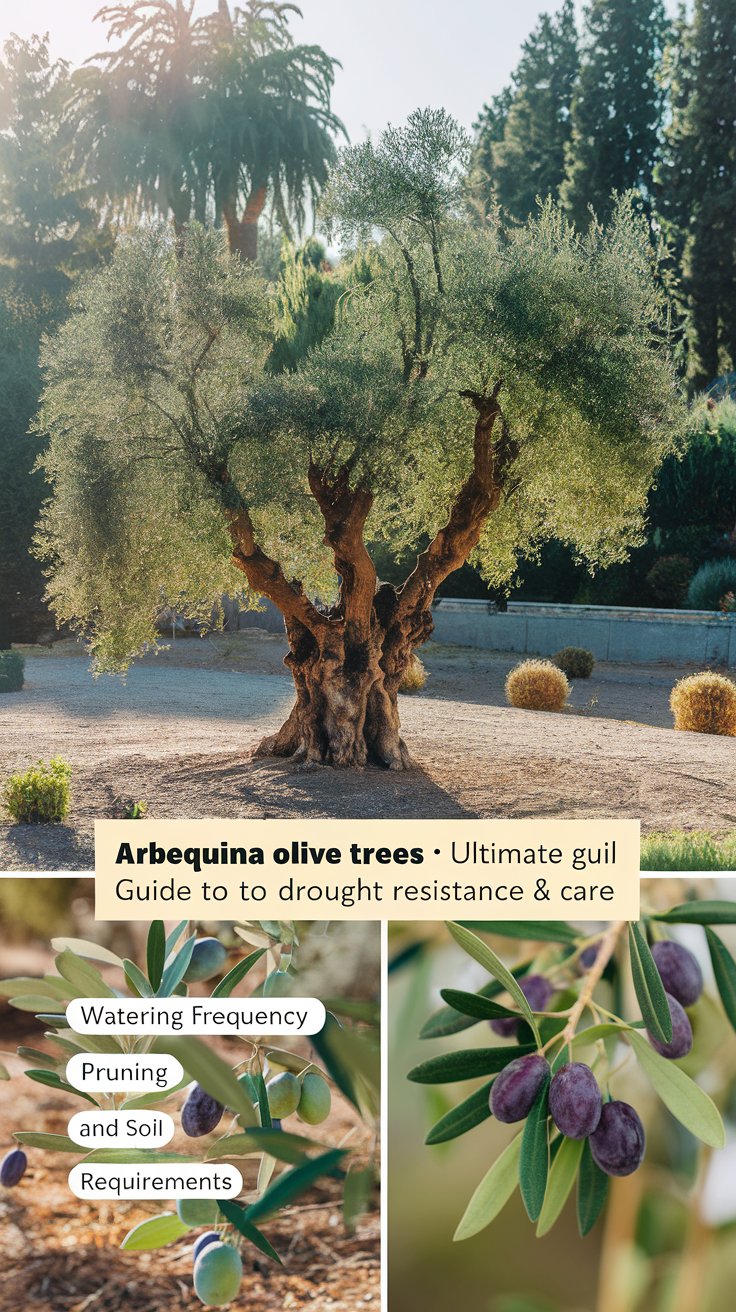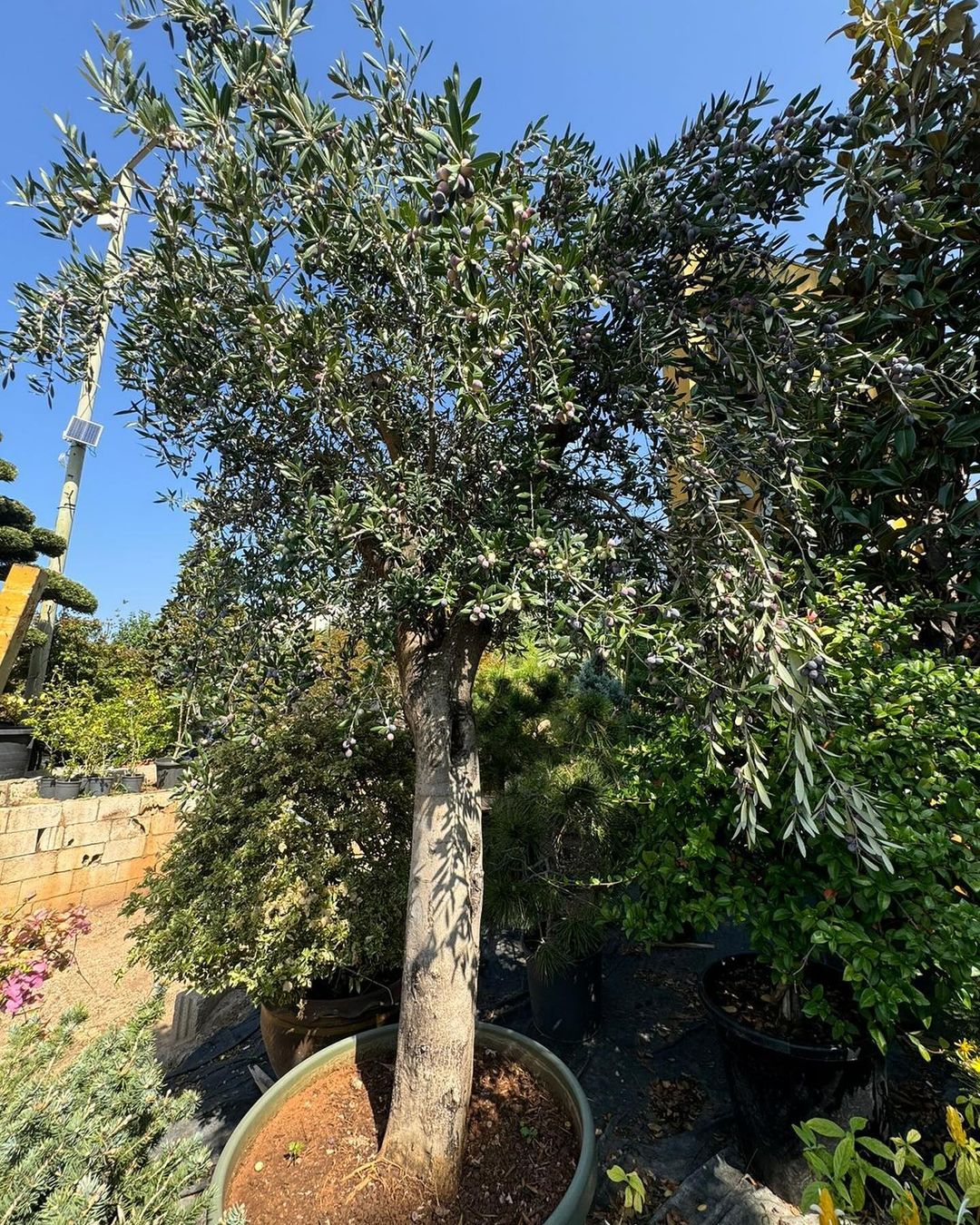Discover how drought-resistant Arbequina olive trees are and learn expert tips for growing these hardy trees in dry conditions. Updated guide for 2024 with watering schedules and care instructions.
Arbequina olive trees demonstrate excellent drought resistance once established, typically surviving with as little as 15-20 inches of annual rainfall. These hardy Mediterranean trees can withstand extended dry periods while maintaining fruit production, making them ideal for water-conscious gardening and commercial olive cultivation in arid regions.
Hello, I’m Ashley Scott, a professional horticulturist with over 15 years of experience in Mediterranean fruit tree cultivation. Today, I’ll share my expertise about Arbequina olive trees’ impressive drought resistance and how to maximize their survival in dry conditions.
Understanding Arbequina Olive Trees’ Natural Drought Resistance

Arbequina olive trees (Olea europaea ‘Arbequina’) have evolved several adaptations that make them exceptionally drought-resistant:
- Deep Root System
Extends 15-20 feet deep in mature trees
- Spreads horizontally up to 30 feet
- Accesses water sources unavailable to shallow-rooted plants
- Leaf Adaptations
Small, thick leaves reduce water loss
- Silvery-green color reflects sunlight
- Specialized stomata control moisture retention
- Water Storage Capacity
Efficient water storage in trunk and branches
- Ability to survive on minimal rainfall
- Enhanced water use efficiency
Drought Tolerance Metrics

According to research from the University of California’s Olive Center, Arbequina olives demonstrate:
- Survival in areas with as little as 15-20 inches annual rainfall
- Ability to withstand 2-3 months without supplemental water
- 30-40% less water requirement compared to other fruit trees
- Continued fruit production under moderate drought stress
Establishing Drought-Resistant Arbequina Trees
First Year Care
Young trees require consistent moisture to develop drought resistance:
- Water deeply twice weekly
- Maintain moist but not waterlogged soil
- Monitor soil moisture levels regularly
- Apply 3-4 inches of mulch to retain moisture
Developing Root Systems
To encourage deep root growth:
- Water deeply and infrequently
- Gradually reduce watering frequency
- Avoid shallow, frequent irrigation
- Allow soil to dry between waterings
Mature Tree Drought Management
Water Requirements by Season
Spring (Growing Season):
- 1-2 deep waterings monthly
- Additional water during fruit development
- Monitor leaf health for stress signals
Summer (Peak Drought):
- Increase watering frequency during extreme heat
- Water deeply every 2-3 weeks
- Apply supplemental water during prolonged drought
Fall/Winter:
- Reduce watering frequency
- Rely on natural rainfall
- Monitor winter rainfall patterns
/should-you-replace-mulch-around-trees-in-texas/
Signs of Drought Stress
Watch for these indicators:
- Early Warning Signs:
Leaf curling
- Duller leaf color
- Reduced new growth
- Severe Stress Indicators:
Leaf drop
- Branch dieback
- Reduced fruit size
Maximizing Drought Resistance
Soil Management
Implement these practices for optimal drought resistance:
- Mulching:
Apply 3-4 inches organic mulch
- Maintain mulch-free area around trunk
- Refresh mulch annually
- Soil Amendments:
Add organic matter to improve water retention
- Incorporate water-holding polymers
- Maintain proper soil pH (6.5-8.5)
Cultural Practices
Follow these guidelines:
- Pruning:
Remove water sprouts
- Thin canopy for reduced water demand
- Maintain appropriate tree size
- Fertilization:
Use slow-release fertilizers
- Avoid excess nitrogen
- Follow recommended rates
Commercial Growing Considerations
For olive grove managers:
- Irrigation Systems:
Install efficient drip irrigation
- Implement soil moisture monitoring
- Use irrigation scheduling tools
- Grove Layout:
Space trees appropriately
- Consider slope and drainage
- Plan for water conservation
/plants-and-fungi-that-grow/
Climate Change Adaptation
Arbequina olives are becoming increasingly popular due to:
- Rising temperatures in traditional growing regions
- Extended drought periods
- Water use restrictions
- Need for climate-resilient crops
/when-do-flip-trees-start-flowering/
Arbequina olive trees demonstrate remarkable drought resistance, making them excellent choices for water-conscious gardening and commercial cultivation. With proper establishment and care, these trees can thrive with minimal water input while maintaining productive harvests.
For more gardening tips and plant care guides, visit usagardenhub.com
